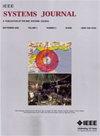Discovering Decision Manifolds to Assure Trusted Autonomous Systems
IF 4.4
3区 计算机科学
Q1 COMPUTER SCIENCE, INFORMATION SYSTEMS
引用次数: 0
Abstract
Developing and fielding complex systems requires proof that they are reliably correct with respect to their design and operating requirements. Especially for autonomous systems, which exhibit unanticipated emergent behavior, fully enumerating the range of possible correct and incorrect behaviors is intractable. Therefore, we propose an optimization-based search technique for generating high-quality, high-variance, and nontrivial data, which captures the range of correct and incorrect responses a system could exhibit. This manifold between desired and undesired behavior provides a more detailed understanding of system reliability than traditional testing or Monte Carlo simulations. After discovering data points along the manifold, we apply machine learning techniques to quantify the decision manifold's underlying mathematical function. Such models serve as correctness properties, which can be utilized to enable both verification during development and testing, as well as continuous assurance during operation, even amidst system adaptations and dynamic operating environments. This method can be applied in combination with a simulator in order to provide evidence of dependability to system designers and users, with the ultimate aim of establishing trust in the deployment of complex systems. In this proof-of-concept, we apply our method to a software-in-the-loop evaluation of an autonomous vehicle.发现决策流形以保证可信自治系统
开发和部署复杂系统需要证明它们在设计和操作要求方面是可靠正确的。特别是对于表现出意外紧急行为的自治系统,充分列举可能的正确和错误行为的范围是难以解决的。因此,我们提出了一种基于优化的搜索技术,用于生成高质量、高方差和重要的数据,这些数据可以捕获系统可能显示的正确和错误响应的范围。与传统测试或蒙特卡罗模拟相比,期望行为和不期望行为之间的歧义提供了对系统可靠性更详细的理解。在发现流形上的数据点后,我们应用机器学习技术来量化决策流形的底层数学函数。这样的模型作为正确性属性,可以用来支持开发和测试期间的验证,以及操作期间的持续保证,甚至在系统调整和动态操作环境中也是如此。该方法可以与模拟器结合使用,以便为系统设计者和用户提供可靠性证据,最终目的是在复杂系统的部署中建立信任。在这个概念验证中,我们将我们的方法应用于自动驾驶汽车的软件在环评估。
本文章由计算机程序翻译,如有差异,请以英文原文为准。
求助全文
约1分钟内获得全文
求助全文
来源期刊

IEEE Systems Journal
工程技术-电信学
CiteScore
9.80
自引率
6.80%
发文量
572
审稿时长
4.9 months
期刊介绍:
This publication provides a systems-level, focused forum for application-oriented manuscripts that address complex systems and system-of-systems of national and global significance. It intends to encourage and facilitate cooperation and interaction among IEEE Societies with systems-level and systems engineering interest, and to attract non-IEEE contributors and readers from around the globe. Our IEEE Systems Council job is to address issues in new ways that are not solvable in the domains of the existing IEEE or other societies or global organizations. These problems do not fit within traditional hierarchical boundaries. For example, disaster response such as that triggered by Hurricane Katrina, tsunamis, or current volcanic eruptions is not solvable by pure engineering solutions. We need to think about changing and enlarging the paradigm to include systems issues.
 求助内容:
求助内容: 应助结果提醒方式:
应助结果提醒方式:


